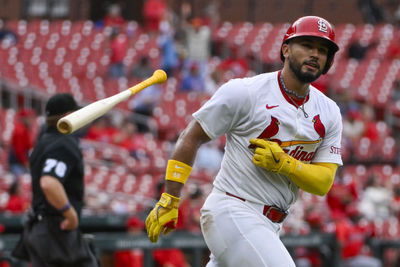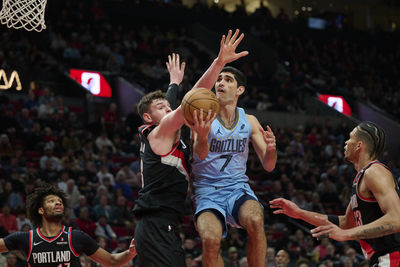Fantasy Football FAAB Mid-Season Check: How to Proceed Depending on Your Budget and Record
Several paths for handling your remaining FAAB budget depending on circumstances.
We’re close to the half-way point of the NFL season and past the midpoint of the fantasy season. For those who are new to free agent auction bidding (FAAB) leagues, it can be hard to know when to spend your budget and when to save. Every situation is different, from season to season and even week to week; there’s no one right answer.
I want to dive into FAAB outlooks depending on your remaining budget. Essentially, what does the rest of the season look like if you have a full budget, half budget, or low budget left for the final eight weeks or so.
There are some things that apply to everyone, no matter how much you have left to spend:
Things to Remember
Every week that goes by means less time to spend your money. If a big-time free agent comes up, it’s not as big of a deal now to spend most or all your budget on that one player. You won’t have a chance to grab anyone else, but that will be the case for only half the season rather than the full season.
The way you spend your budget from this point should be directly related to the state of your team: owners who are sitting near the top of the standings can feel better about saving money for one big splash move or more tweaks during the playoffs.
If your team is already in danger of falling out of the race, it’s better to make improvements now to win some games before it’s too late. It won’t do much good to have the most money remaining heading into the playoffs if you don’t even make the field.
Full Budget
You might be regretting some of the guys you passed on over the first eight weeks if you have all or most of your budget remaining. That’s the wrong way to think, though: you can’t change the past, but you do have probably more money than anyone else and can outbid your league-mates for any free agent.
The season is about half over, so a full budget is kind of like having twice the money per week available; you just have less time to spend it. You can still stay conservative and wait for a major injury. The longer the season goes, the more injuries will add up.
Jaylen Warren is a good example here: Najee Harris has close to four times as many carries as Warren, and while part of that is two missed games for the latter, Harris has been far more involved than Warren.
If Harris were to go down with a season-ending injury, Warren would be a hot commodity. He’s only owned in about half of leagues, so there’s a good chance you would be able to throw your whole budget at him.
If your team is toward the bottom of the standings or even middling, it might be worth making some moves for some mid-level players. Ricky Pearsall of San Francisco is a good example: he has been pushed into a bigger role by injuries, and if the first-round pick finds his footing, he could put up big numbers in an efficient offense.
Make the moves that are best for your team, but don’t hold onto everything so long that you run out of time to spend it.
Half Budget
Again, it all depends on where your team stands. This level means you’ve been spending an average amount each week, making a few small moves and maybe a bigger pickup or two. The situation is very similar to the beginning of the year, as you have a proportionate amount of money left.
Spend if you’re losing, save if you’re winning; that’s the best I can tell you here. You haven’t played your hand heavily one way or the other, so just stay on the path and do what’s best for your situation.
Low Budget
This means you either spent big on a few players or have spent a little bit each week and things have added up. Either way, the state of your team dictates your best way forward.
If your team is solid and marching to the playoffs at the top of the standings, it’s probably best to save your few bucks for closer to the playoffs in case of emergency. Tweaks along the way won’t mean as much as filling a big hole in your lineup in Week 15.
On the other hand, if your team is on the brink of falling out of playoff contention, it’s probably better to spend your money upgrading your team now to get back in the race. It won’t do any good to have money sitting in your coffer if your team is 1-11.
The equation changes if you’re trying to avoid a last-place punishment: it’s fine to keep a little money for the playoffs when you’re trying to avoid getting a tattoo of Ernest on your butt.
Spending Your Whole Budget
If the money disappears at the end of the season, there’s nothing to gain by holding onto FAAB dollars. I like the idea of a rolling budget where leftover money could be added to next year’s auction draft, but that’s a complicated process that most leagues won’t include.
In most cases, the money you currently have is burning a hole in your pocket and needs to be spent. Opportunities are running out; don’t be the person sitting with the most money remaining at the end of the year.







